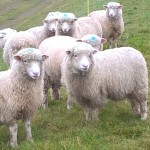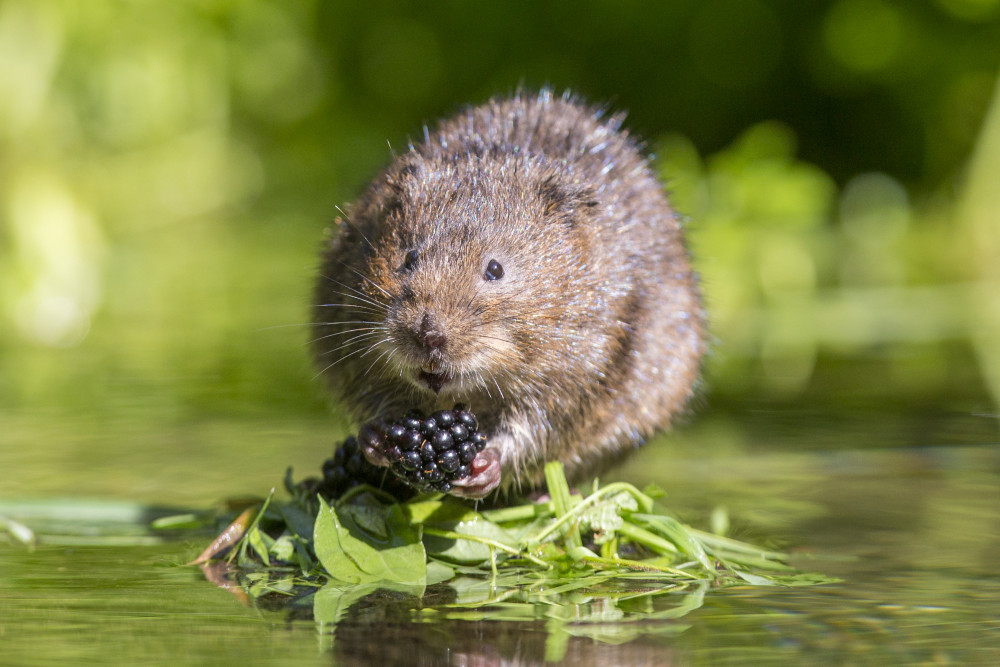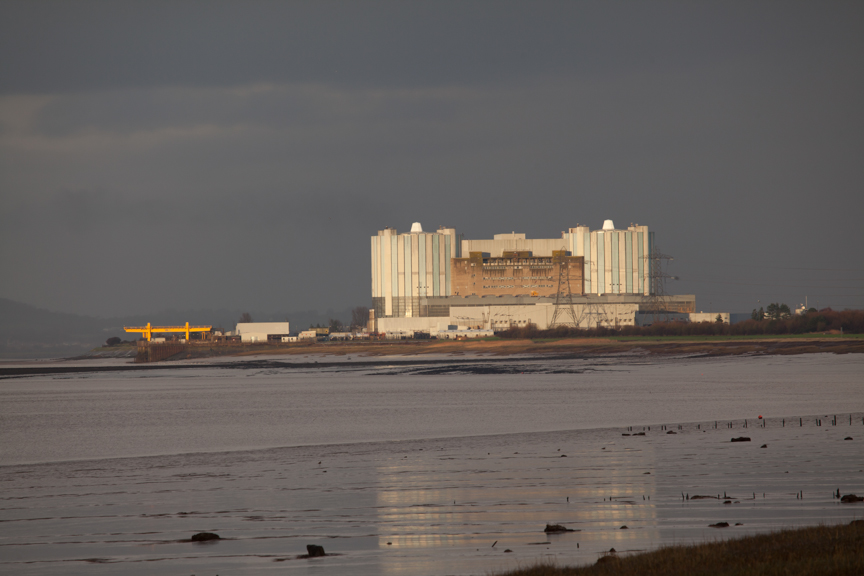Salt Marsh Grazing Project
-
 Local farmer Paul, Mark from FWAG, James from North and Letherby, Anne from The Bristol Port Company and Emma from A Forgotten Landscape
Local farmer Paul, Mark from FWAG, James from North and Letherby, Anne from The Bristol Port Company and Emma from A Forgotten Landscape -
 Sheep at Chittening Warth
Sheep at Chittening Warth
Grazing is an excellent traditional land management practice for salt marsh, but sheep had last grazed Chittening Warth in the 1970s. In the decades since, large areas had been taken over by sea couch, reducing the diversity of the plant communities and the value of salt marsh for bird species.
Coastal salt marsh supports a range of specially adapted plants and is extremely important for breeding, wintering and migrating birds. This is vital in the Severn Estuary, which is designated a Special Protection Area (SPA), Special Area of Conservation (SAC) and SSSI site due to the nationally and internationally important flocks of birds that assemble.
Healthy coastal habitat also helps provide natural defences against storm threats and flooding.
Getting this project off the ground was a true partnership. The land is owned by The Bristol Port Company. They (advised by North & Letherby) worked together with AFL, Natural England, the Environment Agency and FWAG Southwest to develop a suitable grazing regime that aims to reduce the extent and dominance of the sea couch, opening up the salt marsh sward to encourage a more diverse salt marsh community.
Says the farmer, “I’m happy to be able to help contribute to the area’s biodiversity and the sheep really enjoy it too.”
“We are delighted to be working in partnership with the local farming community and A Forgotten Landscape to establish grazing on our land,” said Anne Hayes, Environment Manager at The Bristol Port Company. “We look forward to seeing real environmental improvements here as the saltmarshes return to their former glory.”
Colin Leppard of Natural England added “It’s marvellous to see the development of such an exciting partnership initiative aimed at establishing a sustainable grazing regime in order to restore the SSSI saltmarsh into favourable condition status.”
Additional funding was kindly supplied by the Bristol Avon Catchment Partnership.






















